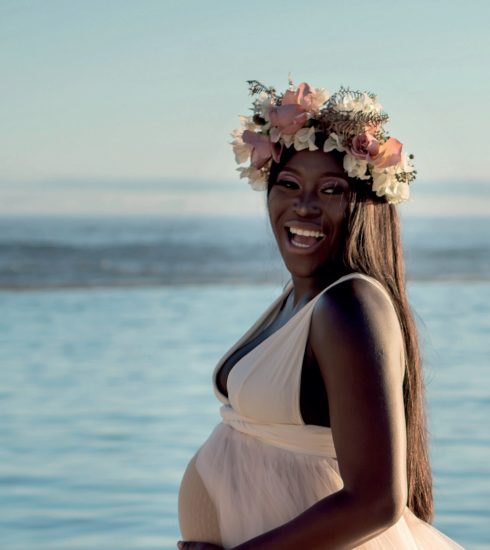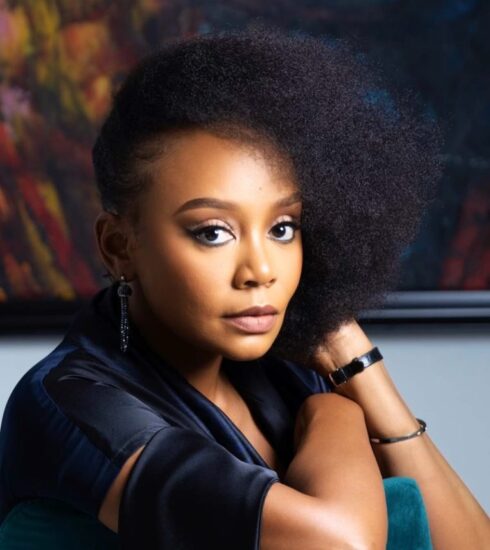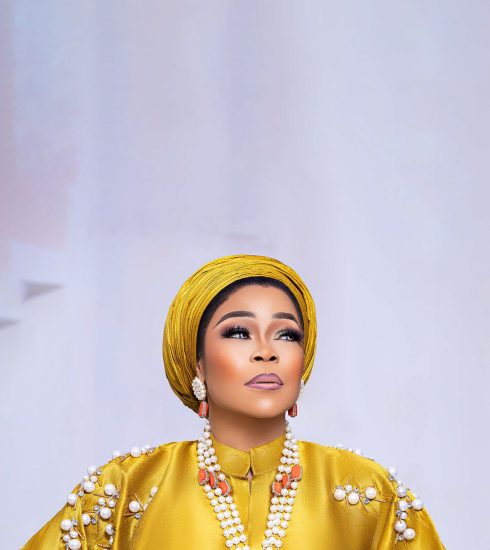Ameera Abraham Talks The Business of Beauty
Over the years, the wellness and beauty sector has advanced significantly. What was once considered a luxury has become essential to everyday self-care. Skincare, spa treatments, and beauty rituals have become more focused on health and clean ingredients, and we all can agree that in Nigeria, the industry has seen a big shift, with more brands rising to create products that are made specifically for specific skincare concerns and types. Clean beauty, which is all about safe and non-toxic ingredients, is also gaining ground. More people now care about what they put on their skin, hands, and nails, and Nigerian brands are leading the way by offering safe, thoughtful, and effective products that truly work.
Ameera Abraham, an aesthetician, entrepreneur, author, and wellness advocate, is one woman who has played a big part in this growth. She is the CEO and Spa Director of The Nail Bar, a luxury nail spa and wellness centre, and the founder of Amali Cosmetics. Ameera is also the author of The Full Set, a memoir that shares the real challenges and lessons of running a beauty business. Her journey into skincare and wellness comes from a deeply personal place. After being diagnosed with PCOS, she noticed that many popular skincare products worsened her symptoms. This led her to start Amali Cosmetics, a brand that focuses on clean, safe, and effective beauty. Through her work, she has created a space where beauty meets wellness and women feel seen, understood, and cared for.
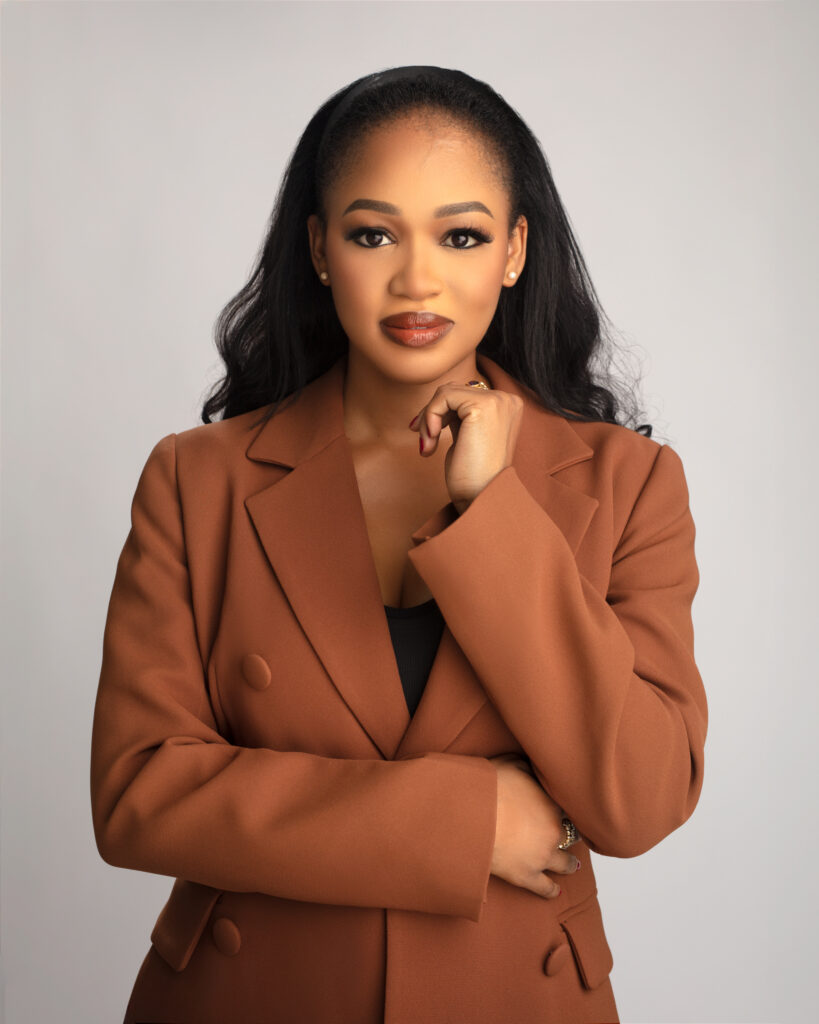
In this interview with THEWILL DOWNTOWN’s Executive Editor, Onah Nwachukwu, Ameera Abraham discusses her journey into the beauty and wellness space, what wellness truly means to her, how Amali Cosmetics was born, and the growing power of clean beauty in Nigeria.
What inspired your journey into the beauty and wellness industry?
My journey began in 2007, rooted in profound grief following a personal loss. Shortly after the tragic passing of my cousin, I sought solace in spa sessions, which offered me a glimpse of relief amidst my pain. This experience ignited my curiosity about the connection between self-care and grief management, leading me to explore the beauty industry professionally in 2010.
Can you tell us what led to the creation of The Nail Bar?
Absolutely! After completing my NYSC, I found myself reflecting on my career path. Being an avid spa-goer, I noticed a significant gap in the market in Abuja. There were limited options for high-quality nail and spa services, and I believed there was a real opportunity to fill that void. Having already completed several relevant courses in aesthetics and beauty therapy a few years prior, I felt well-prepared to take this leap. I didn’t envision a future for myself in the corporate world; it just didn’t resonate with my passions or aspirations. I wanted to create something that not only fulfilled my dreams but also catered to the needs of the community. That’s when the idea for The Nail Bar was born. I envisioned a space that combined quality nail care with a relaxing spa atmosphere—something unique for the federal capital territory. It was important to me to establish the very first nail spa in Abuja, where clients could enjoy a luxurious experience while receiving top-notch services. From the outset, I focused on creating a welcoming environment where clients could escape their daily stresses. I meticulously designed the space, paying attention to every detail, from the decor to the selection of services offered. I wanted The Nail Bar to be more than just a place for nail care; I aimed to create a sanctuary for beauty and relaxation. As we grew, I made it a priority to foster a culture of excellence. This meant not only hiring skilled technicians but also providing ongoing training to ensure we stayed ahead of industry trends and maintained the highest standards of service. Ultimately, my journey to creating The Nail Bar has been about passion, community, and a commitment to quality. I’m proud to have built a space that resonates with so many people, where they can indulge in self-care and leave feeling rejuvenated.
As an aesthetician, how has your expertise shaped the services and standards at The Nail Bar?
My expertise has profoundly influenced both the services we offer and the standards we uphold at The Nail Bar. First and foremost, I believe in providing customised treatments. Each client’s skin type and concerns are unique, so I assess their needs to tailor our services for optimal results. I also stay updated on advanced techniques and technologies in the field, which allows us to elevate our offerings—whether it’s through innovative facial treatments or effective skin analysis tools. Education is another cornerstone of our approach. I prioritise training our staff on skincare best practices, ensuring that everyone is well-versed in the latest products and techniques. This not only enhances the care we provide but also builds trust with our clients. Hygiene and safety are non-negotiable for us. I’ve established rigorous hygiene standards that exceed industry norms, creating a safe and comfortable environment for everyone who walks through our doors. When it comes to product selection, my background helps guide us in choosing high-quality, effective products, both for treatments and retail. This commitment to excellence is crucial in fostering a reputation for results-driven services. Lastly, I focus on building strong relationships with our clients. Providing personalised advice and follow-up care is essential for cultivating loyalty and ensuring they feel valued. By integrating my aesthetic knowledge with a commitment to quality, I believe we’ve made The Nail Bar a true destination for clients seeking beauty and wellness.
As the CEO and Spa Director of The Nail Bar, what have been the most rewarding and most challenging parts of your entrepreneurial journey so far?
The most rewarding aspect of my journey has been the incredible individuals I’ve met along the way. The impact I’ve had on their lives and my contributions to shaping Nigeria’s beauty industry are truly remarkable. However, navigating the industry alone at the outset was a challenge. Finding the right staff and educating both them and our customers on global best practices required immense time, patience, and sacrifice to effectively communicate my vision when it was not widely understood.
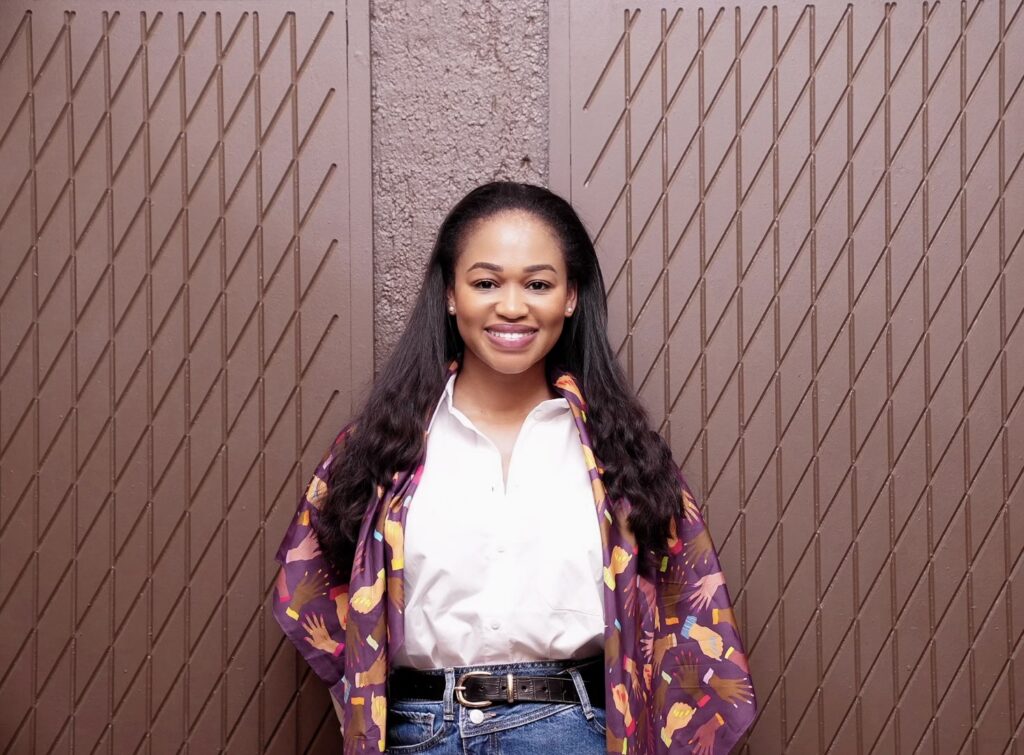
What was the defining moment that made you realise you were on the right path?
A pivotal moment for me was being appointed as the Executive Chair for Nigeria by the Spa and Wellness Association of Africa. My ascent to Director of Communications and recognition across various African countries, alongside my involvement in shaping global health and safety guidelines for COVID-19 with experts from the USA, Europe, and Africa, was incredibly validating. There is nothing quite like receiving a global stamp of approval.
What inspired the launch of Amali Cosmetics, and what gap did you see in the Nigerian beauty industry that you wanted to fill?
Amali Cosmetics emerged from my personal struggle with PCOS, where I discovered that certain skincare ingredients exacerbated my symptoms. This experience inspired me to create a line of solution-oriented, effective, and safe products for healthy hands, nails, and feet. While the Nigerian beauty market is rapidly expanding, much of it focuses on maintenance products rather than treatment solutions. Amali Cosmetics aims to bridge that gap.
How do you stay updated with evolving skincare techniques and technologies, and how do you incorporate them into your work?
I firmly believe in the power of continuous education. As an academic, I am passionate about sharing my insights and experiences from the past 14 years. I have invested in various courses—spa management, nail care, aesthetics, and entrepreneurship—over the last 18 years, earning a reputation as one of Nigeria’s most educated industry experts. I relish the opportunity to share this knowledge with my team and the broader community. A testament to this commitment is my book, The Full Set, which also serves as an online course offering essential tools for running a successful beauty business.
Sustainability and clean beauty are growing trends. How does Amali Cosmetics approach these values?
Amali Cosmetics is deeply committed to sustainability and clean beauty, values that are integral to our brand ethos. We prioritise the use of locally sourced ingredients, ensuring that our manufacturing processes support local economies while minimising our carbon footprint. Our formulations are designed to be effective yet safe, focusing on treatment-based solutions rather than just maintenance products. We are transparent about our ingredient listings, allowing consumers to make informed choices about what they apply to their skin. Additionally, we advocate for environmentally responsible practices by offering refillable and recyclable packaging. By educating our customers on the benefits of clean beauty, we aim not only to provide high-quality products but also to foster a community that values health, safety, and environmental stewardship. Through these efforts, Amali Cosmetics strives to demonstrate that luxurious, effective beauty solutions can indeed come from Nigeria and compete on a global stage.
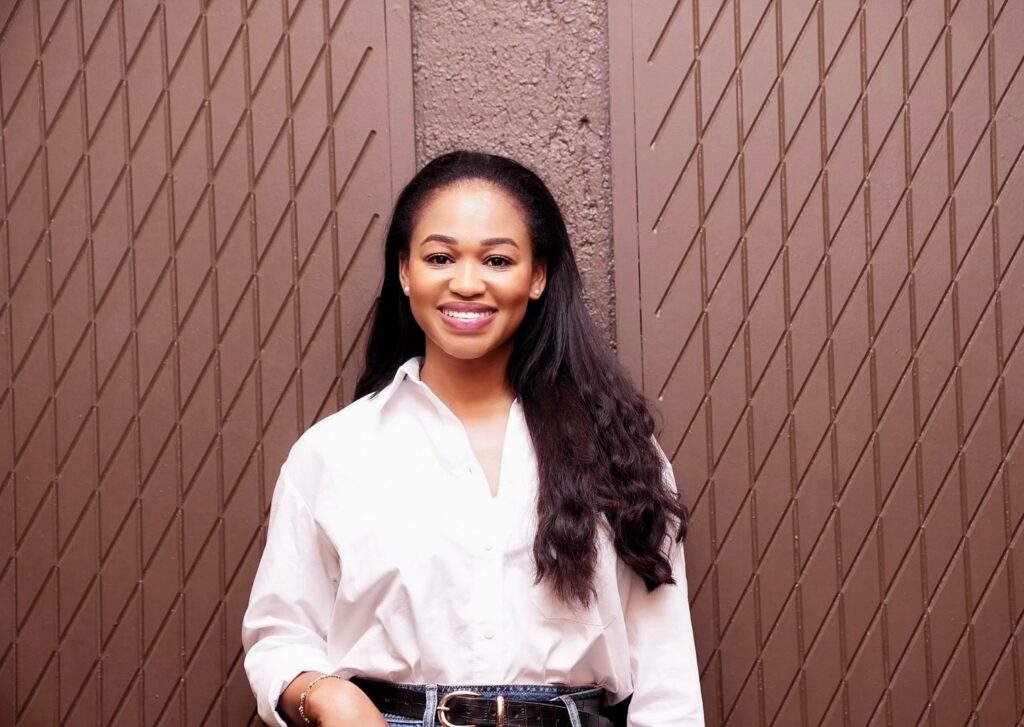
In your book titled The Full Set, you share business tips, can you share one that you believe every beauty entrepreneur should implement immediately?
One of the most crucial tips I emphasise is the importance of education. I firmly believe that education is paramount; you are only as good as the knowledge you acquire and apply in practice. For beauty entrepreneurs, this means committing to continuous learning and staying updated on industry trends, techniques, and technologies. Investing in education can take many forms—whether it’s attending workshops, enrolling in certification programs, or participating in industry conferences. Each of these opportunities expands your understanding and equips you with the latest skills necessary to excel in this ever-evolving field. Moreover, I encourage entrepreneurs to foster a culture of learning within their teams. By prioritising training and knowledge-sharing, you empower your staff to provide exceptional service and build credibility with clients. A well-informed team can effectively communicate the benefits of various treatments and products, guiding clients to make informed decisions about their beauty journeys. Ultimately, embracing education not only enhances your own expertise but also elevates the overall quality of your business. It’s an investment in your future and in the satisfaction of your clients. By making education a priority, beauty entrepreneurs can set themselves apart in a competitive market and ensure long-term success.
What misconceptions do people often have about aesthetics and skincare, especially in the Nigerian market?
There are definitely some prevalent misconceptions in the Nigerian market when it comes to aesthetics and skincare. One of the biggest myths is that effective skincare has to be expensive. Many people believe that only high-end products can deliver results, but the truth is, there are plenty of affordable options that can be just as effective. It’s really about focusing on the right ingredients rather than getting caught up in the price tag. Another common misconception is the idea that all skin is the same. People often think skincare is a one-size-fits-all solution, but in reality, every individual’s skin is unique, shaped by factors like genetics, environment, and lifestyle. That’s why personalised skincare routines are so important—they cater to specific skin types and concerns for better outcomes. There’s also a perception that aesthetic treatments are only for the wealthy. While some services can be pricey, many treatments, like facials or chemical peels, are accessible and can fit various budgets. The beauty industry is evolving, offering more options for everyone. There also seems to be confusion around aesthetics, with many equating it solely with cosmetic surgery. I have encountered numerous “aesthetic clinics” on social media that focus exclusively on surgical procedures. Aesthetics encompasses medical-grade skincare treatments, such as lasers and chemical peels, as well as modifications using injectables like fillers and Botox. Additionally, the misuse of the term “organic” in skincare has become synonymous with skin-lightening products of dubious quality. Additionally, some people expect quick fixes for their skin issues. While certain treatments can provide rapid improvements, achieving truly healthy skin is usually a long-term commitment that involves consistent care and routine. Another misconception is that natural ingredients are always safe. While many natural products can be beneficial, it’s important to remember that some can still cause allergies or irritations. Always patch-test new products, regardless of whether they’re labeled as natural. Lastly, there’s this outdated belief that skincare is only for women. The truth is, men can benefit just as much from tailored skincare routines and aesthetic treatments. While the stigma around men’s grooming is changing, there’s still a need to encourage broader participation.
What advice would you give to aspiring beauty entrepreneurs looking to build a brand that stands the test of time?
To succeed in building an authentic and relatable brand, one must embody passion, authenticity, and education. These three pillars are essential for sustainable growth and the ability to compete on a global scale. Passion is the driving force behind any successful brand. It fuels creativity and innovation, inspiring not only the entrepreneur but also the team and, ultimately, the customers. When a brand is built on genuine passion, it resonates deeply with its audience. Authenticity is equally crucial. In a world saturated with marketing messages, consumers are increasingly drawn to brands that are genuine and transparent. Authenticity builds trust and credibility, which are vital for long-term relationships with customers. Brands that share their story, values, and mission openly create a sense of community and belonging among their audience. This not only enhances customer loyalty but also attracts new clients who resonate with the brand’s ethos. By being true to their identity and values, brands can cultivate a loyal following that appreciates their transparency and integrity. Education is the third pillar that cannot be overlooked. In an ever-changing market, staying informed about industry trends, innovations, and customer needs is essential. Educating both the team and the customers creates a knowledgeable environment that fosters growth. An educated customer base is more likely to appreciate the value of a brand and remain loyal to it. Together, these three pillars create a strong foundation for a brand. Passion inspires action and creativity, authenticity builds trust and community, and education empowers both the team and the customers. When a brand embodies these qualities, it not only stands out in a crowded marketplace but also lays the groundwork for sustainable growth. This holistic approach enables brands to adapt and thrive on a global scale, meeting the diverse needs of their audience while staying true to their core values. Ultimately, it’s about creating a brand that not only succeeds commercially but also makes a positive impact on the lives of its customers.
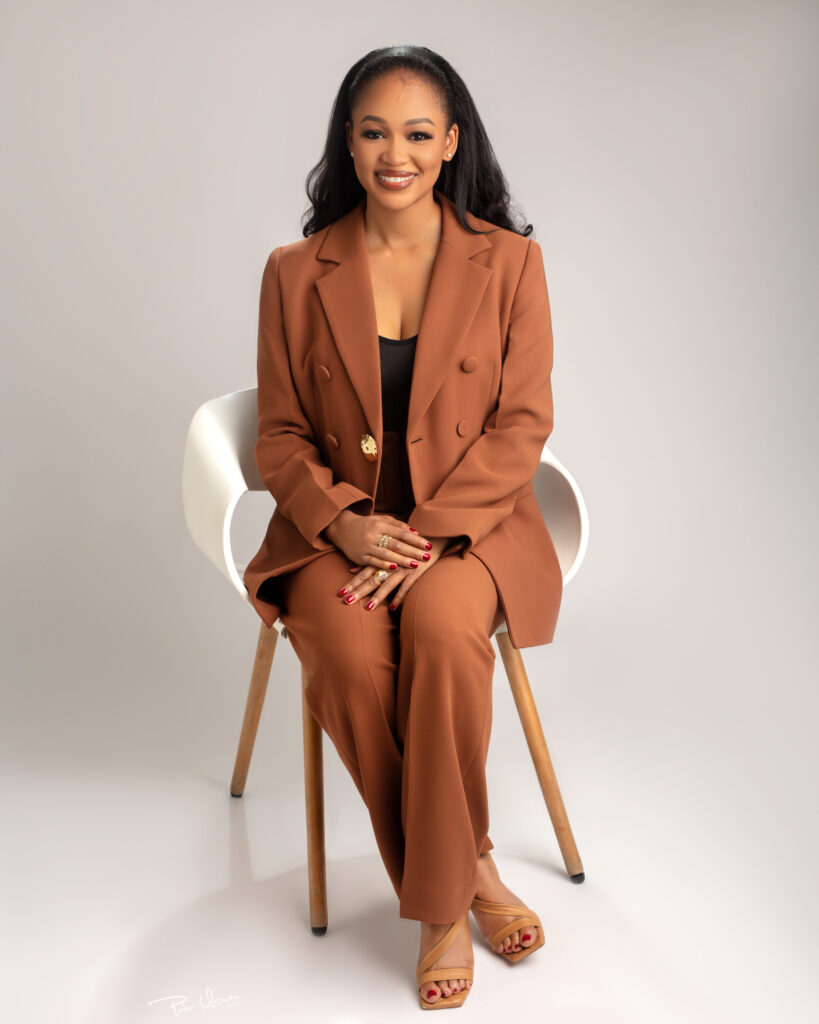
As someone at the forefront of the industry, what beauty trends or shifts are you most excited about right now?
I am particularly excited about the intersection of AI and beauty technology. This realm is truly revolutionary, and I am eager to explore its potential. AI is transforming the beauty industry in remarkable ways, from personalised skincare recommendations to advanced diagnostic tools that analyse skin conditions. This level of personalisation not only enhances the customer experience but also empowers individuals to make informed choices about their skincare. For me, the convergence of AI and beauty technology holds the promise of creating more inclusive, efficient, and personalised experiences for everyone. I’m excited to be part of this journey and to witness how it will shape the future of the beauty industry.
What do you think still needs to change in Nigeria’s beauty industry, particularly in areas of professional training and standardisation?
First and foremost, the industry needs recognition from the government. Beauty should not be categorised under the fashion industry; this distinction is crucial. Additionally, establishing a regulatory body is key to setting industry standards. I am grateful to be part of the first technical committee on beauty and wellness services established by the Standards Organisation of Nigeria, dedicated to advancing industry benchmarks.
A lawyer by training, Onah packs over a decade of experience in both editorial and managerial capacities.
Nwachukwu began her career at THISDAY Style before her appointment as Editor of HELLO! NIGERIA, the sole African franchise of the international magazine, HELLO!
Thereafter, she served as Group Editor-in-Chief at TrueTales Publications, publishers of Complete Fashion, HINTS, HELLO! NIGERIA and Beauty Box.
Onah has interviewed among others, Forbes’ richest black woman in the world, Folorunso Alakija, seven-time grand slam tennis champion, Roger Federer, singer Miley Cyrus, Ex Governor of Akwa Ibom State, Godswill Akpabio while coordinating interviews with Nigerian football legend, Jayjay Okocha, and many more.
In the past, she organised a few publicity projects for the Italian Consulate, Lagos, Nigeria under one time Consul General, Stefano De Leo. Some other brands under her portfolio during her time as a Publicity Consultant include international brands in Nigeria such as Grey Goose, Martini, Escudo Rojo, Chivas, Martell Absolut Elix, and Absolut Vodka.
Onah currently works as the Editor of TheWill DOWNTOWN.





